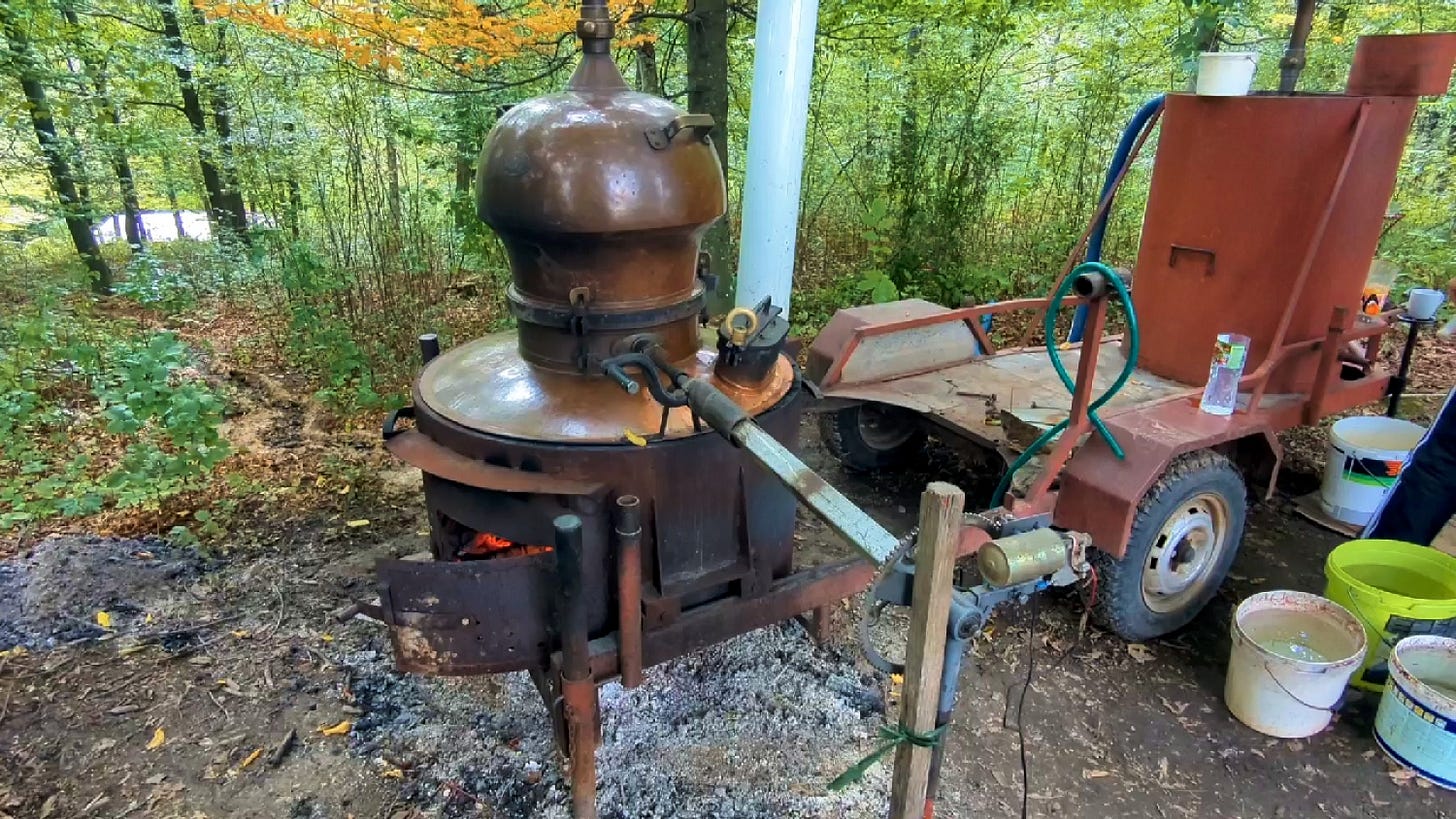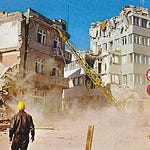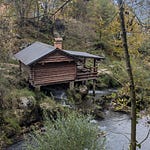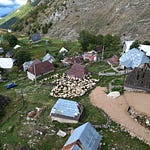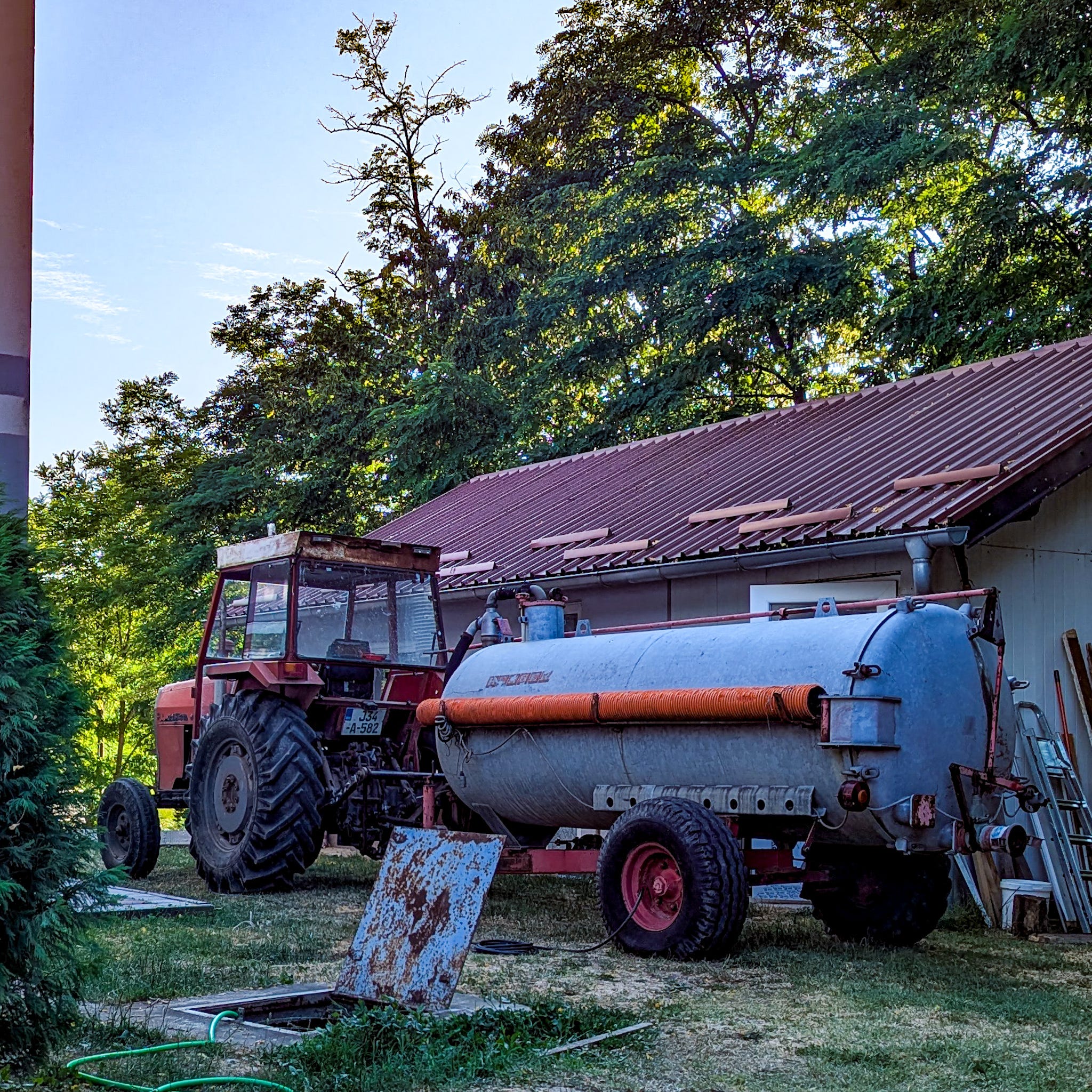If you didn't already know, I am David, a 71-year-old British expat living in Bosnia and Herzegovina and someone who has lived in Bosnia and Herzegovina for the past 22 years.
This podcast blends engaging conversations with locals and narrative-driven episodes that take you on immersive journeys through the region’s history, food, and everyday life
In This Episode
Join me as I take you into the heart of the Bosnian countryside to experience the time-honoured tradition of making rakija with family.
We're distilling 100 litres of this fiery brandy, 90 of pear and 10 of apple.
Witness the rustic process set in the enchanting woods, and see how these moments of preserving tradition strengthen connections to the land and each other.
If you've ever wondered about the authentic way to make rakija, you won't want to miss this episode.
00:00 Introduction to Rakija Baking
00:30 A Day in the Bosnian Countryside
00:50 The Rakija Distillation Process
02:24 Family Traditions and Moments.
Do You have any suggestions for future Video Topics?
The Cultural Significance of Rakija
Rakija holds a special place in Bosnia and Herzegovina’s cultural and social fabric. This traditional fruit brandy is much more than just a drink—it’s a symbol of hospitality, heritage, and celebration.
In Bosnia, rakija is commonly made from plums (šljivovica), but it can also be distilled from other fruits like apples, pears, grapes, and even quinces. Each region in the country may have its own twist on the recipe, but the core process remains a labour of love passed down through generations.
The Distillation Process
Rakija is typically homemade, with many families in Bosnia boasting their own secret recipes. The process begins with fermenting the chosen fruit until it reaches the right stage for distillation. Traditional distillation is done using a kazani (copper still), which is fired up over a wood-burning stove, often in the backyard or garden. The distillation process requires a skilled hand, as timing and temperature control are crucial to creating the perfect batch. The first distillate, known as prvača or mehkica, is often too strong for drinking and can be used for medicinal purposes or household cleaning.
Cultural Significance
Rakija is an essential part of Bosnian hospitality. When visiting a home, it’s customary for hosts to offer guests a glass of homemade rakija, often accompanied by a warm welcome and traditional snacks like meze (cold cuts, cheese, bread).
Offering rakija is a gesture of friendship, and refusing can be considered impolite in some settings.
Rakija in Social and Family Life
Throughout Bosnia, rakija plays a role in major life events, whether it’s a wedding, christening, or even a funeral, rakija is ever-present, symbolising both joy and remembrance.
Many families distill their own rakija, and it’s common for the drink to be given as a gift, shared during festivals, or used for ceremonial purposes.
Varieties in Bosnia
• Šljivovica: Made from plums, this is the most iconic form of rakija in Bosnia. It’s known for its smooth yet robust flavour.
• Loza: A rakija made from grapes, similar to Italian grappa or Greek tsipouro.
• Jabukovača: An apple-based rakija that offers a slightly sweeter, fruity flavour.
• Kruškovača: Made from pears, this rakija is more delicate but highly aromatic.
Each region of Bosnia has its own take on rakija, often influenced by local fruit varieties and distillation methods. In some areas, rakija is aged in oak barrels, which gives it a smoother taste and amber colour, adding an additional layer of complexity to the flavour profile.
Rakija and Health
In Bosnian tradition, rakija is sometimes believed to have medicinal properties. A small glass of rakija is thought to be good for digestion, and it’s also used as a remedy for colds, sore throats, and even as a topical treatment for muscle aches when rubbed on the skin.
Modern Rakija
While homemade rakija remains a beloved tradition, commercial brands have also emerged, exporting Bosnian rakija to other parts of the world.
However, for many Bosnians, nothing compares to the taste of a homemade rakija crafted with care by family or friends.
Rakija in Bosnia is more than just a drink; it’s a connection to the land, the people, and the stories that have shaped Bosnian culture for centuries.
Find Out More about Rakija Distilling
Click on the Image to Watch My YouTube Rakija Playlist ⬆️
And Finally
The Dubioza Kolektiv are from Bosnia and Herzegovina. This music video (please turn on English sub titles) shows how rakija is featured by the people from the country itself. It’s DEFINITELY worth watching.
Your feedback means the world to me. I genuinely enjoy reading and responding to your comments, as it keeps the conversation alive. If you found this post valuable, hitting the 🧡 or sharing it helps it reach more readers. Thank you for your support!
Come and Visit Us in Bosnia and Herzegovina
📈 The Survey 📊
I have a short survey designed to improve my Substack. It would be super helpful if you could find under 5 minutes to complete it. Thanks so much in advance.
And Finally
Don’t forget that you can read back editions of the Digital Magazine, listen to previous podcasts (we have quite an archive now), or catch other content, all this is available on the web interface, just like a regular blog.
Tamara and I appreciate your faithful support, your comments, and your generosity!
Until next time.
THANKS SO MUCH ❤️
If you can’t subscribe to Coffee and Rakija, for whatever reason, and really would like access to all my content, please drop me a message.




